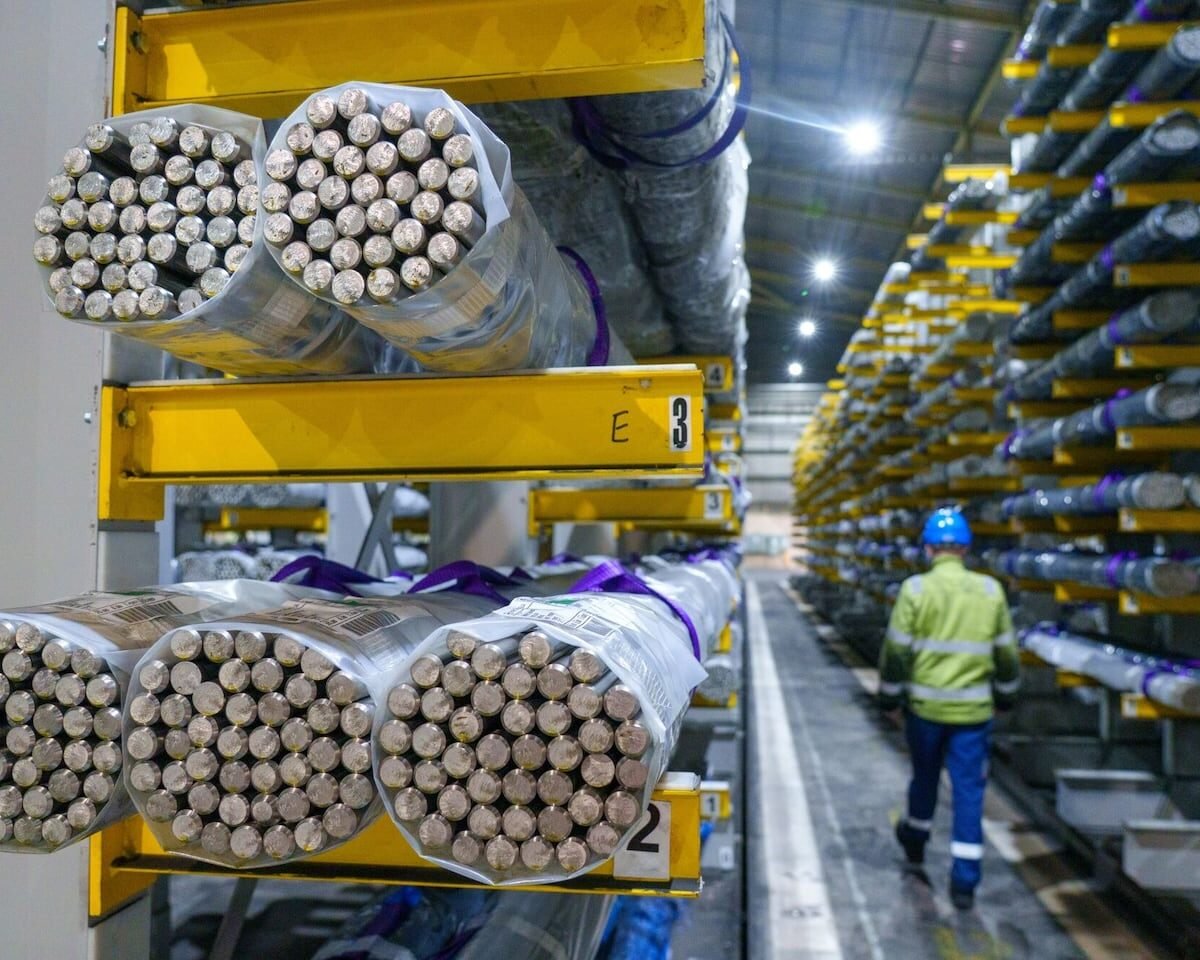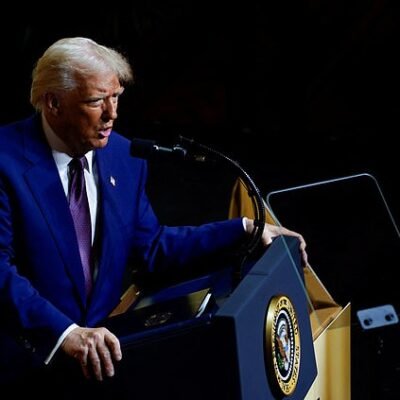Oil plunged and other commodities from industrial metals to grains slipped as President Donald Trump’s tariff onslaught ratcheted up a trade war that threatens to hurt the global economy and demand for raw materials. Gold fell from a fresh record high.
The levies were seen as more aggressive than expected, with a 10% duty on all exports to the US and even higher rates on about 60 nations. While a swath of commodities — including energy, steel and aluminum — were exempted, there are mounting concerns about a broader hit to consumption, with major trading partners China and the European Union both vowing countermeasures.
US crude slumped more than 6% in the biggest drop since October, compounded by an unexpectedly big supply hike by OPEC+. European gas touched a three-week low and copper shed as much as 2.8%. Gold, which investors sometimes sell to raise cash to offset other losses, slipped along with silver. Soybeans dropped the most since January on worries American crops will suffer from retaliatory measures, and cotton plunged by the exchange limit.
“Assuming they stick, which is a big assumption, they will weigh on global economic growth and be inflationary,” said Pierre Andurand, who runs hedge fund Andurand Capital. “For commodities it will be overall negative for global demand, particularly for commodities used to move things around: ie oil.”
Of particular concern in commodities markets will be the impact on China, the world’s top buyer of many raw materials. The country has already imposed tariffs on US farm products and there’s a risk the trade war could escalate. Canada and Mexico — key sources of crude for refiners in the Midwest and Gulf Coast — aren’t subject to the latest fees for now.
“The tariffs were bigger than expected,” said Giovanni Staunovo, a commodity analyst at UBS Group AG. “The question now is how other nations will respond, including whether we will see stimulus measures.”
Commodities were pressured despite a weaker dollar, something that normally makes them more attractive to investors holding other currencies.
Oil, natural gas and energy products are among exempted goods, the White House said, sparing the direct impact on fuel flows. Still, crude has been whipsawed by Trump’s policy changes, tariffs and sanctions on Iran and Venezuela. With the levies threatening consumption, declines in refined fuel markets outpaced those in crude.
“The anticipated hit to demand because of tariffs also has a negative impact on crude, refined products and some extent natural gas demand, which is the main reason for the downward move on prices,” Rabobank strategist Florence Schmit said. “There is more at stake than meets the eye here as the future of the US LNG industry still hinges on large off-take agreements with buyers in Europe in Asia, who were just hit by sweeping tariffs.”
West Texas Intermediate crude came under added pressure as OPEC+ agreed to make a larger-than-expected oil supply hike in May, adding the equivalent of three monthly tranches from its previous plan to revive output.
Metals are being handled under a separate “Section 232” tariff regime. Aluminum already has a blanket 25% fee on all US imports, while tariffs on copper are expected within weeks. Zinc, nickel, tin and a wide range of other commodities were also exempted from the country-specific tariffs, though they could be subject to Section 232 probes in future.
The threat of tariffs has caused major ructions in metals markets, with traders racing to ship billions of dollars of gold, silver and copper to the US before potential levies are imposed — and to take advantage of higher prices there.
While Trump has said he wants to impose specific tariffs on copper, the worry in precious metals markets was that they’d be ensnared by broader tariffs on all incoming goods. On Wednesday, the White House clarified that gold, silver and platinum-group metals will be exempt from the new reciprocal levies, bringing the massive arbitrage trade to an abrupt halt.
China is a key market for soybeans. If there is retaliation, the US may struggle to move its products to Asia, which is a major market for American grain and oilseed exports, said Ole Houe, chief executive officer at Sydney-based Ikon Commodities. China and other parts of Asia are also home to some of the world’s biggest cotton importers — which also export textiles back to the US.
Trump exempted goods covered under the USMCA North American trade agreement, which could help maintain crop flows with key US trading partners Mexico and Canada.
Canola futures jumped to the highest in almost a month. The advance hints that markets had been pricing in further import tariffs on Canadian goods, said CRM AgriCommodities consultant Mike Verdin.
Trump Has Unveiled Reciprocal Tariffs. What Are They?: QuickTake





